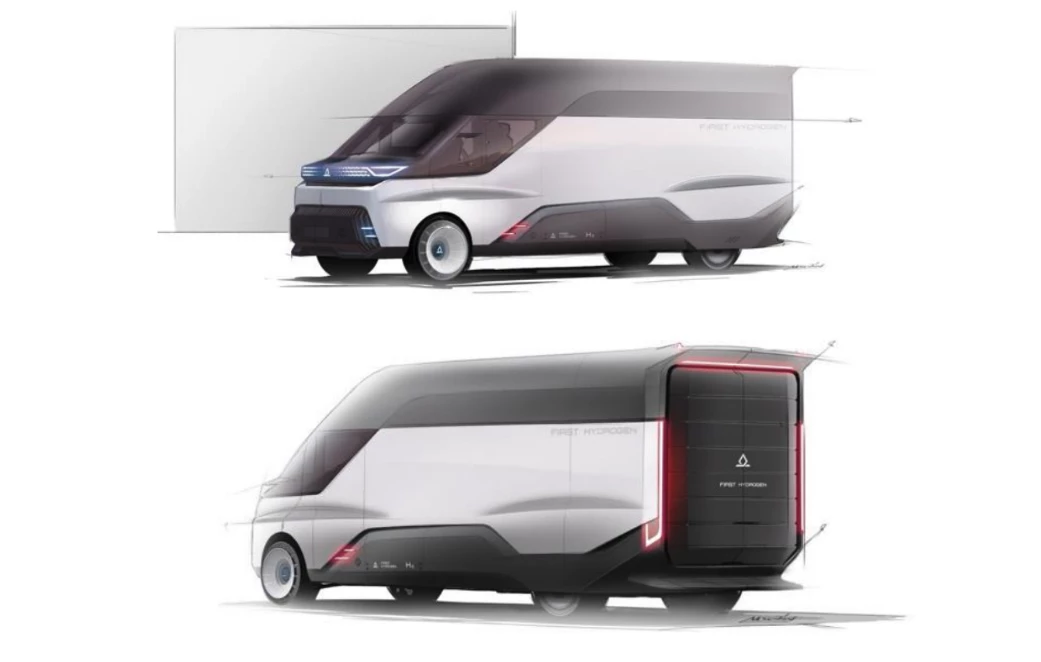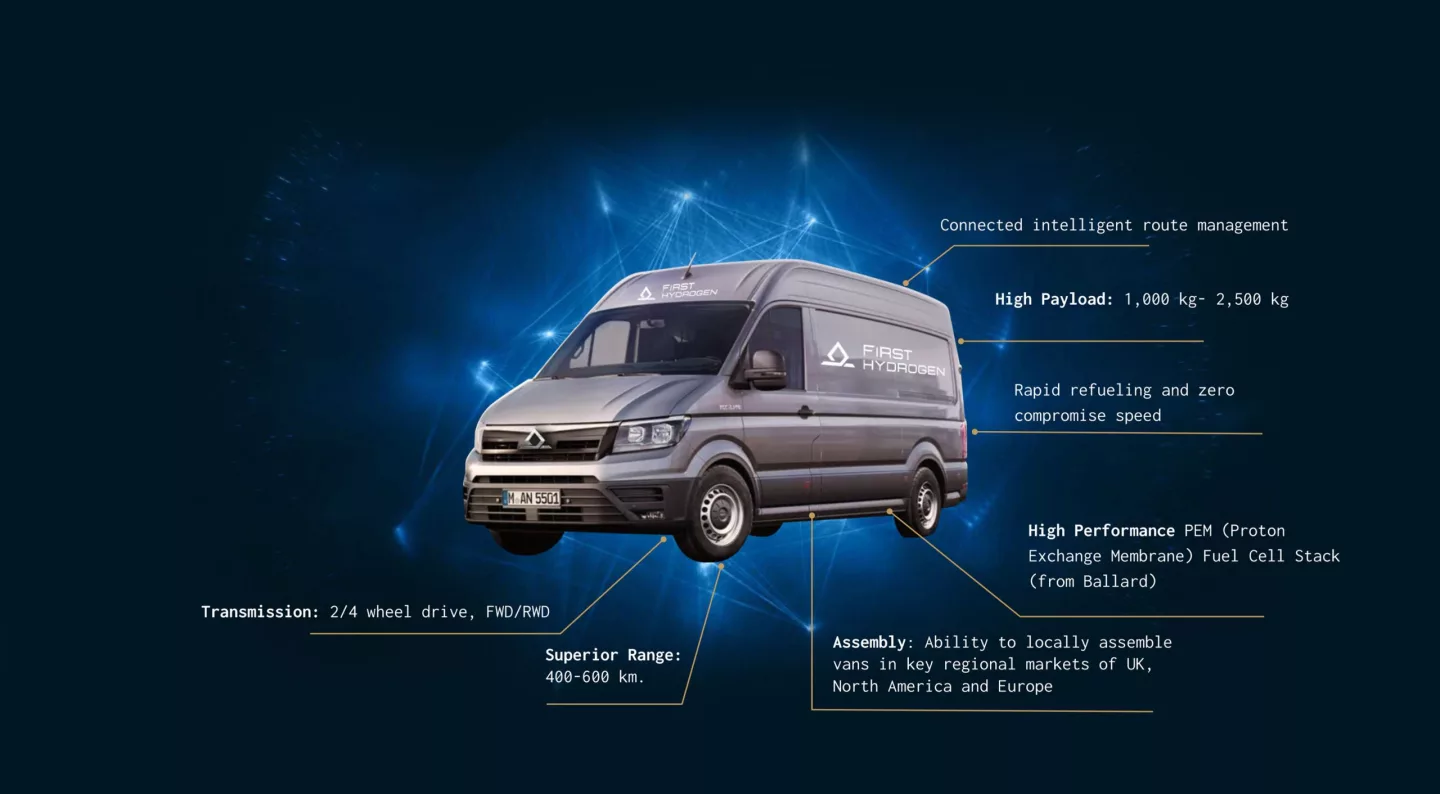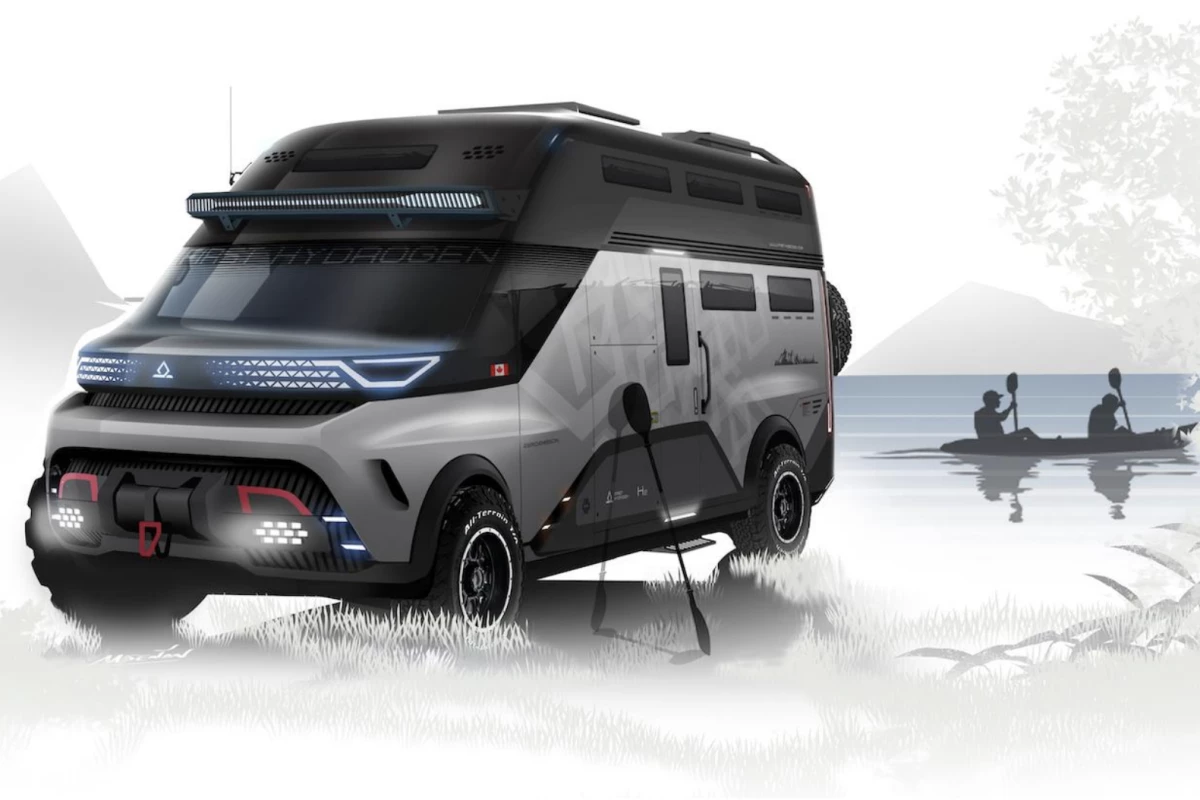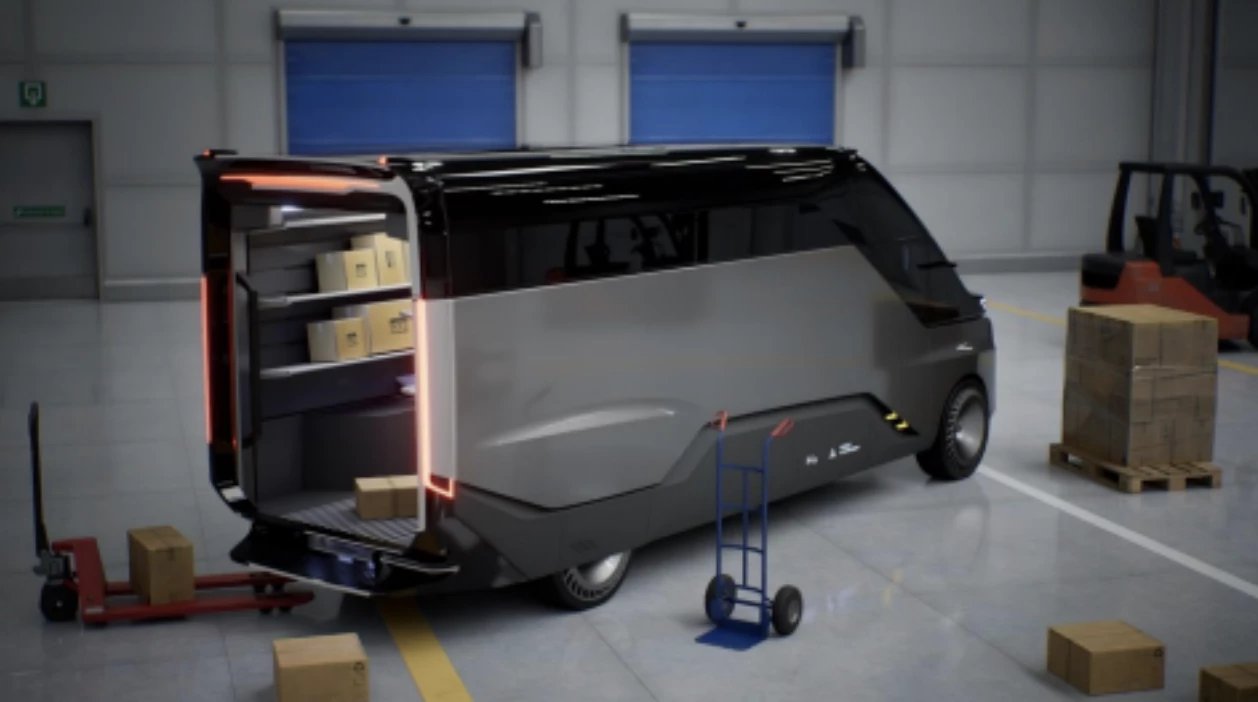Compared to the electric camper vans that have been gradually arriving on the global market, first in Europe and more recently in the United States, a hydrogen fuel cell RV could immediately boost driving range to something more respectable and practical while retaining the biggest advantages of electric drive technology. Transatlantic company First Hydrogen is exploring just such a concept, showing how its next-generation fuel cell vehicle could make a rather compelling all-terrain camper van.
With offices in London and Vancouver, First Hydrogen Corp has been working toward a zero-emissions light commercial vehicle (LCV) paradigm, with a focus on hydrogen fuel cells. In partnership with Ballard and AVL, it has developed a first-generation FCEV demonstrator atop a MAN TGE van and is currently involved in trial testing. At the same time, it's developing a bespoke zero-emissions vehicle from the ground up to serve as its second-generation LCV.
First Hydrogen revealed the first complete images of its Gen 2 LCV concept earlier this month, and it followed up this week with a picture depicting the vehicle upfitted into a full-blown adventure van complete with off-road lighting, a front winch and what looks to be a solar panel peeking out atop the roof. The lack of a roof rack and depiction of kayaking makes us imagine how the capacious leisure vehicle could carry a kayak or other large gear inside the cabin before quick-converting into a waterfront hotel suite.

We're probably thinking a little farther ahead than First Hydrogen, however, as the company ventures only so far as to say that the RV would offer spacious living quarters. It also mentions good ground clearance, and that coupled with off-road-centered components like all-terrain tires, auxiliary lighting and fender flares makes it clear it's pondering an off-road-ready camper van and perhaps an AWD electric motor layout for the Gen 2 family at large.
First Hydrogen created both the original Gen 2 LCV and camper van concepts in collaboration with German engineering services provider EDAG Group, whose name we've long associated with visionary, sometimes unsettling, show cars ... and even the occasional RV(ish) concept.
"The First Hydrogen camper van is an example of how we see hydrogen fuel cell and other electric vehicle technologies having wider applications," said Steve Gill, First Hydrogen's CEO of Automotive. "We are successfully demonstrating the potential fuel cell technology has in the LCV class but are exploring how the technology can benefit other sectors, including leisure vehicles. Connecting with nature is incredibly important for recreational vehicle owners, and this concept indicates how a hydrogen vehicle could help people preserve the environment while enjoying van life."
In terms of "preserving the environment," a fuel cell powertrain would eliminate harmful emissions and operate more quietly than a traditional ICE. First Hydrogen explains that, compared to a battery electric, an FCEV RV could cover longer distances, manage heavier payloads and, most notably, refuel in minutes, roughly as quickly as a gas or diesel vehicle. First Hydrogen has not released range objectives for the Gen 2, but it says its first-generation van is designed to achieve between 249 and 373 miles (400 and 600 km) of range with a refueling time of five minutes.

Having an emissions-free power source could also prove valuable at camp. Electric equipment like a refrigerator and cooktop could run off a leisure battery, and the fuel cell stack could work as a backup power source, a cleaner, quieter alternative to a gas generator or ICE-driven alternator.
Sadly, there is one huge caveat when trying to move any FCEV camping vehicle off the sketchpad and into the real world: lack of hydrogen fueling infrastructure. Being able to quickly refuel is only an advantage if you can actually locate somewhere to do so. This might be manageable for commercial operators with their own refueling sources and specifically distanced routes but is much less manageable when RVing.
The US Department of Energy currently lists only 60 retail hydrogen fueling stations in the entire United States, and 59 of them are concentrated in California. Hawaii also has one for those who might want to put their FCEV RV on a transport ship mid-Pacific Coast Highway road-trip. The situation is even grimmer in First Hydrogen's home countries – both Canada and England show fewer than 10 hydrogen stations.
And that's why hydrogen fuel cell camper concepts tend to amount to little more than renderings and show vehicles. This one definitely doesn't look like it will be any different, but given that First Hydrogen just began the 12- to 18-month-long trial process for Gen 1 fuel cell vehicles, perhaps the hydrogen infrastructure will look a little more robust by the time it readies Gen 2.
Source: First Hydrogen






